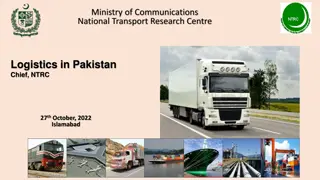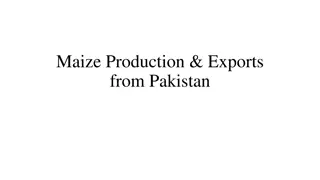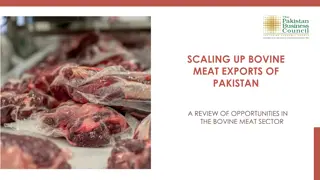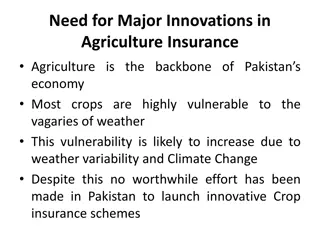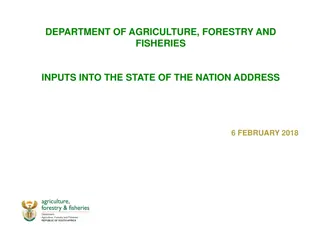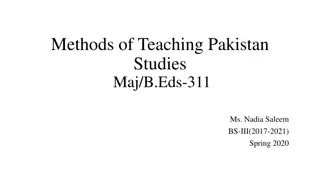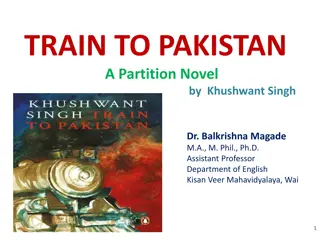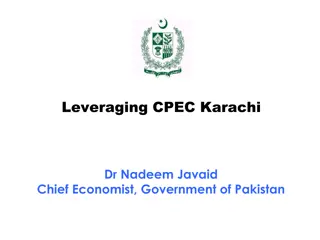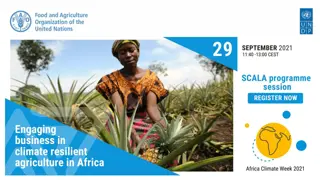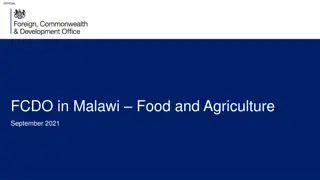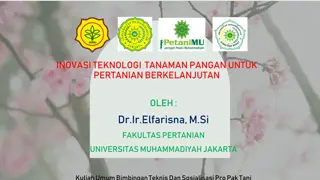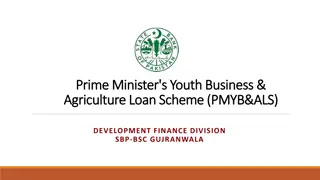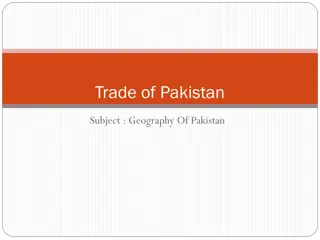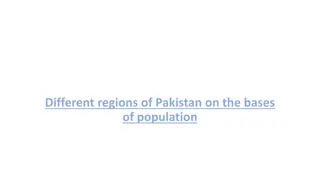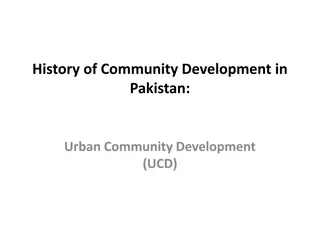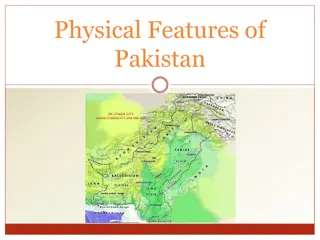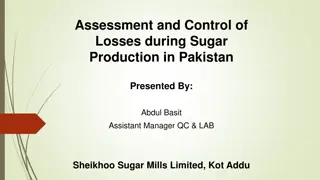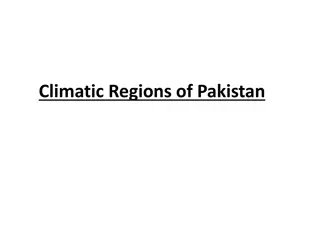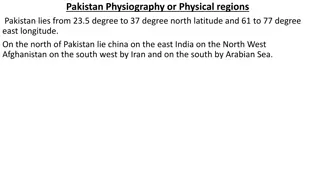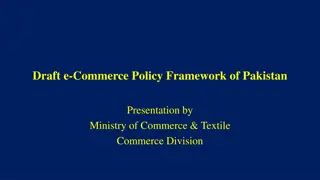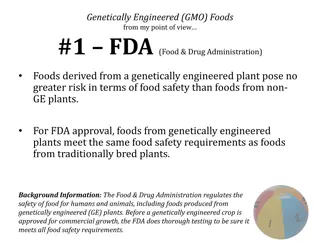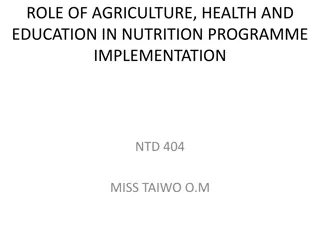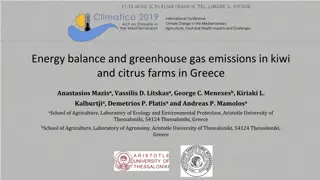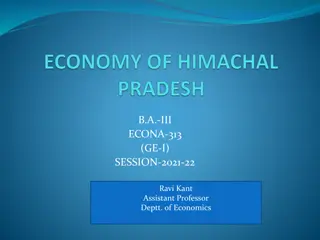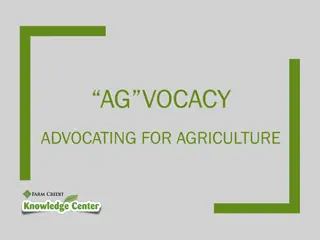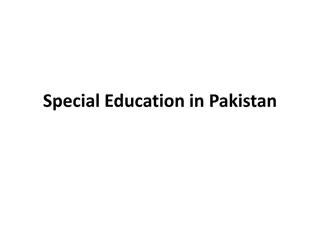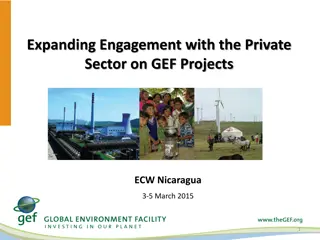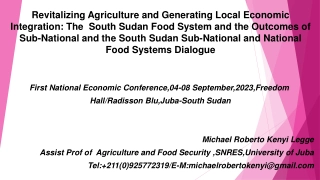GMOs in Pakistan: Challenges and Potential in Agriculture Sector
Pakistan, an agriculture-based country, faces food security challenges due to issues like drought and climate change. With Bt cotton as the only approved GM crop, there are opportunities for enhanced production and disease resistance. However, concerns exist regarding safety, standards, labeling, and awareness of GM foods in the country.
Download Presentation

Please find below an Image/Link to download the presentation.
The content on the website is provided AS IS for your information and personal use only. It may not be sold, licensed, or shared on other websites without obtaining consent from the author. Download presentation by click this link. If you encounter any issues during the download, it is possible that the publisher has removed the file from their server.
E N D
Presentation Transcript
GMOs and Pakistan
CURRENTLY AVAILABLE GMOs Few multinational biotech companies holding the GM market (Monsanto, Novartis, Syngenta, Dupont, Bayer) Main producers: USA, Argentina, Canada, Brazil 35 GMOs on market in European Union GM food: tomato, potato, soybean, corn, wheat
GMOs IN PAKISTAN GMOs prepared in Pakistan: Tomato, sugarcane, soybean, cotton. No standards for GM food in Pakistan Insufficient scientific certainty about safety of GM food GM food mixed with non-GM food No government policy for labeling Presently, no government initiative for awareness on GMOs
AGRICULTURE BASED COUNTRY Pakistan is an agriculture based country with more than 47% of its population dependent on agriculture as a means of livelihood. This sector contributes 24% to gross domestic product (GDP). Agriculture alone contributes about 70% of its foreign exchange. Unless it maintains stable growth rates, its economy will suffer immensely. Pakistan is an agricultural supplier that not only meets its requirements but also exports crop to few countries which involves our neighbor countries, as well as the Middle East and several Central Asian Republics. However, over the recent years, Pakistan is facing some serious challenges on the horizon of which drought, salinity, stress and climate changes are the most important ones.
AGRICULTURE BASED COUNTRY All these issues have raised questions over the food security issues in Pakistan and other parts of the world. The population of Pakistan is about 180 million which is estimated to rise to 240 million by the year 2035. To tackle these challenges, one approach that has been used in the world and to some extent in Pakistan is the genetically modified organisms.
STATUS OF GMOs IN PAKISTAN The only GM crop approved and grown in Pakistan is the Bacillus thuringiensis (Bt) cotton. The regions in which Bt cotton was grown included Bahawalpur, Multan, Muzaffergarh and Karor Pakka, and the farmers tested these crops against its resistance and susceptibility to different insects high temperature, drought and yield and then compared it with traditional cotton varieties grown in similar areas. There have been few benefits observed by the farmers of these regions and it could be concluded from the results that the GM crops may solve a few issues of Pakistan, such as enhanced production and disease resistance. cotton mainly grown in the southern Punjab.
GENETICALLY MODIFIED RICE Recently a Pakistani scientist, Dr. Fida Abbasi has developed a new rice strains which is able to increase the rice production of the country. By applying this technology the number of grains per panicle of rice plant had been increased from 250 to 700. According to him, the production had been increased from 5 tons per hectare to 15 tons per hectare, while new strains of rice was 6 feet tall with a thick stem, large and heavy panicle of 50 centimeters and would bear 700 grains. He claimed such kind of rice does not exist in the world and this rice could be grown by using less water. It is to be mentioned here that Pakistan is the world s fourth largest producer of rice after china, India and Indonesia
CONVENTIONS AND PROTOCOL National Bio-safety guidelines in Pakistan prepared in November 1999 by National Biosafety Committee Only one consultative meeting held in January 2001 Executive meeting held in January 2005 chaired by the Prime Minister Pakistan has also notified the Pakistan Biosafety rules on 21st April, 2005 in order to get the maximum benefits from the GMO technology but at the same time ensuring the safety of humans and the environment. These rules are responsible to govern the manufacture, import and storage of genetically modified organisms
CONVENTIONS AND PROTOCOL National Biosafety Guidelines is built on the following three tiers; (1) National Biosafety Committee (NBC) (2) Technical Advisory Committee (TAC) (3) Institutional Biosafety Committee (IBC) The secretary, Ministry of Environment, is responsible to head the National Biosafety Center and looks after the laboratory work, field trial, commercial release, export, import, sale and purchase of GMOs and their products. Pakistan has fulfilled all the documentation procedure at the perspectives of Cartagena protocol. The Ministry of Environment developed the guidelines for GMOs in May 2005 to organize laboratory research, field studies and commercial release of GMOs and their products.
ADVANTAGES OF GMOs There are certain benefits associated with growing GM crops as compared to the traditional crops. Herbicide tolerance Disease resistance Drought tolerance/ salinity tolerance Overcoming malnutrition Carbon sink and climate change
DISADVANTAGES OF GMOs There are a number of risks associated with biotechnology: a) Allergenicity b) Unintended harm to other organisms c) Gene transfer to non-target species d) Effect on population and ecosystem e) Interaction with non-alien (natural) species f) Loss of ecosystem services g) Impact on agro industry production system h) Market based dependency and food security i) Economic / export loss concerns j) Religious and ethical values
CONCLUSION The genetically modified organisms can help in food production, drought resistance, climate change mitigation and disease resistance, but in addition it may produce number of threats at gene, individual, population and ecosystem level. They can also have an impact on the agro industry of developing countries. The GMOs can be complementary to the traditional crops but by no means can they replace the traditional crops. The world must ensure that the standards are followed in using the GMOs and are being continuously monitored. The developing countries like Pakistan should ensure strong scientific capacity and research based approach in the field of genetically modified organisms.
The Pakistan Environmental Protection Agency should fully concentrate and equip their manpower in growing emerging technology (biotechnology), and they must completely analyze risk assessment before introducing GM from other countries. Furthermore, Pakistan must concentrate on synthetic biology as an alternative to the emerging field of biotechnology, as it poses least compared to traditional biotechnology. risk as The European Union and USA also promote its expertise in synthetic biology. Therefore, it is need of the hour to promote the research in this area in Pakistan as a powerful replacement to traditional biotechnology.


